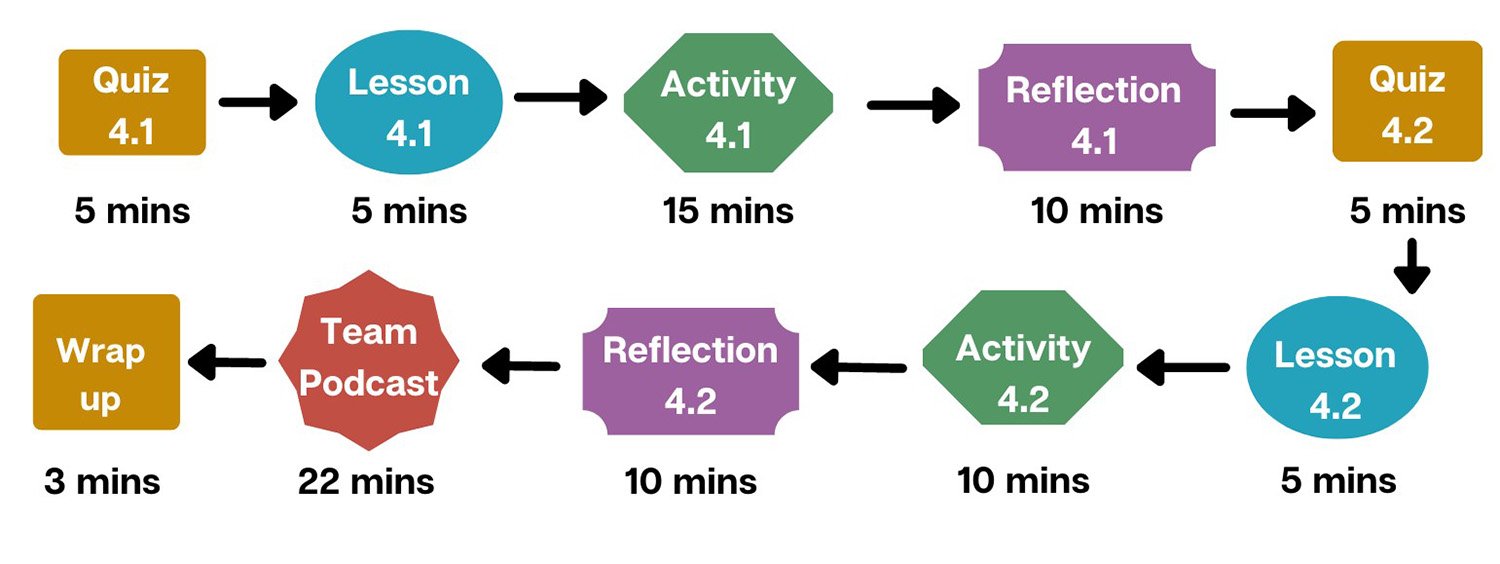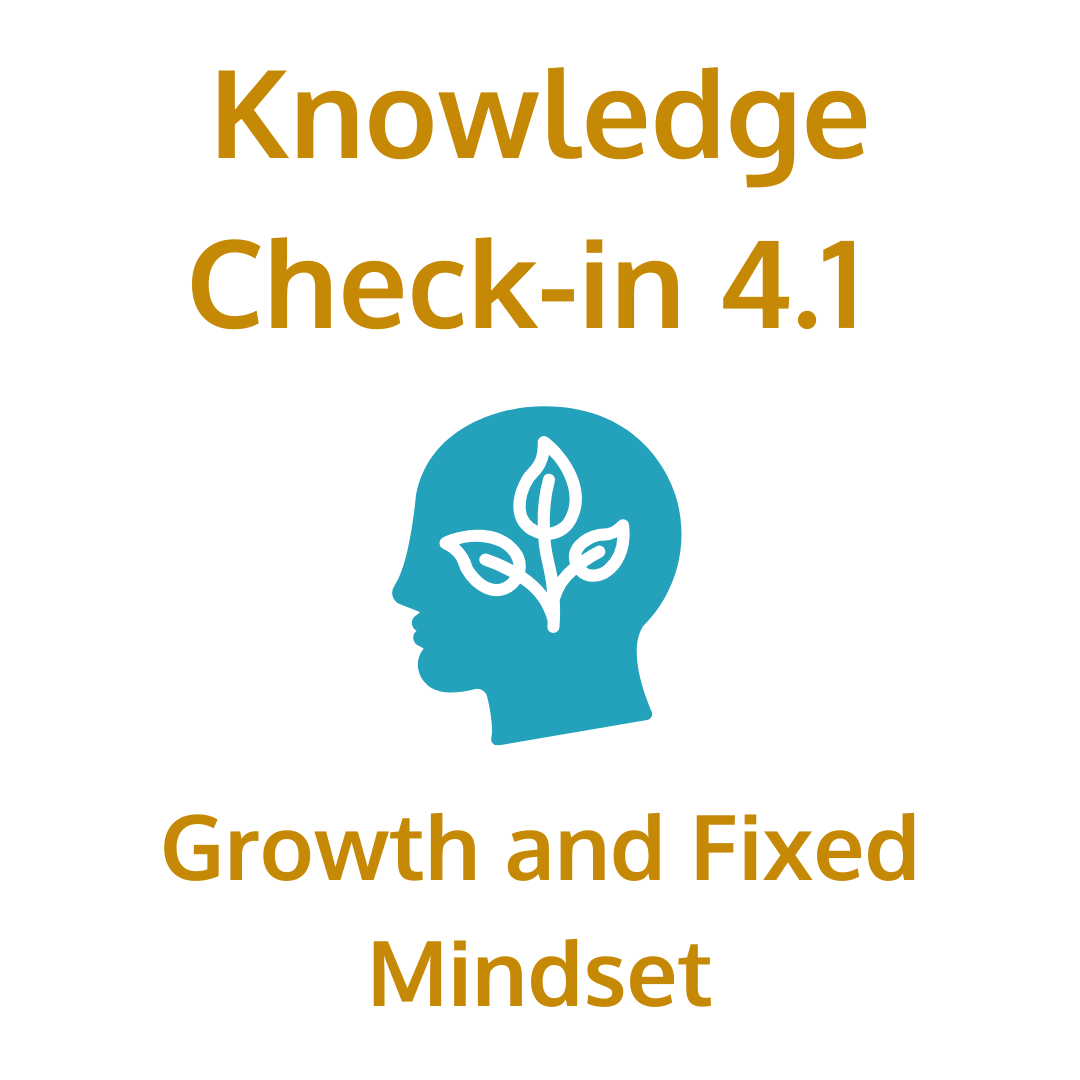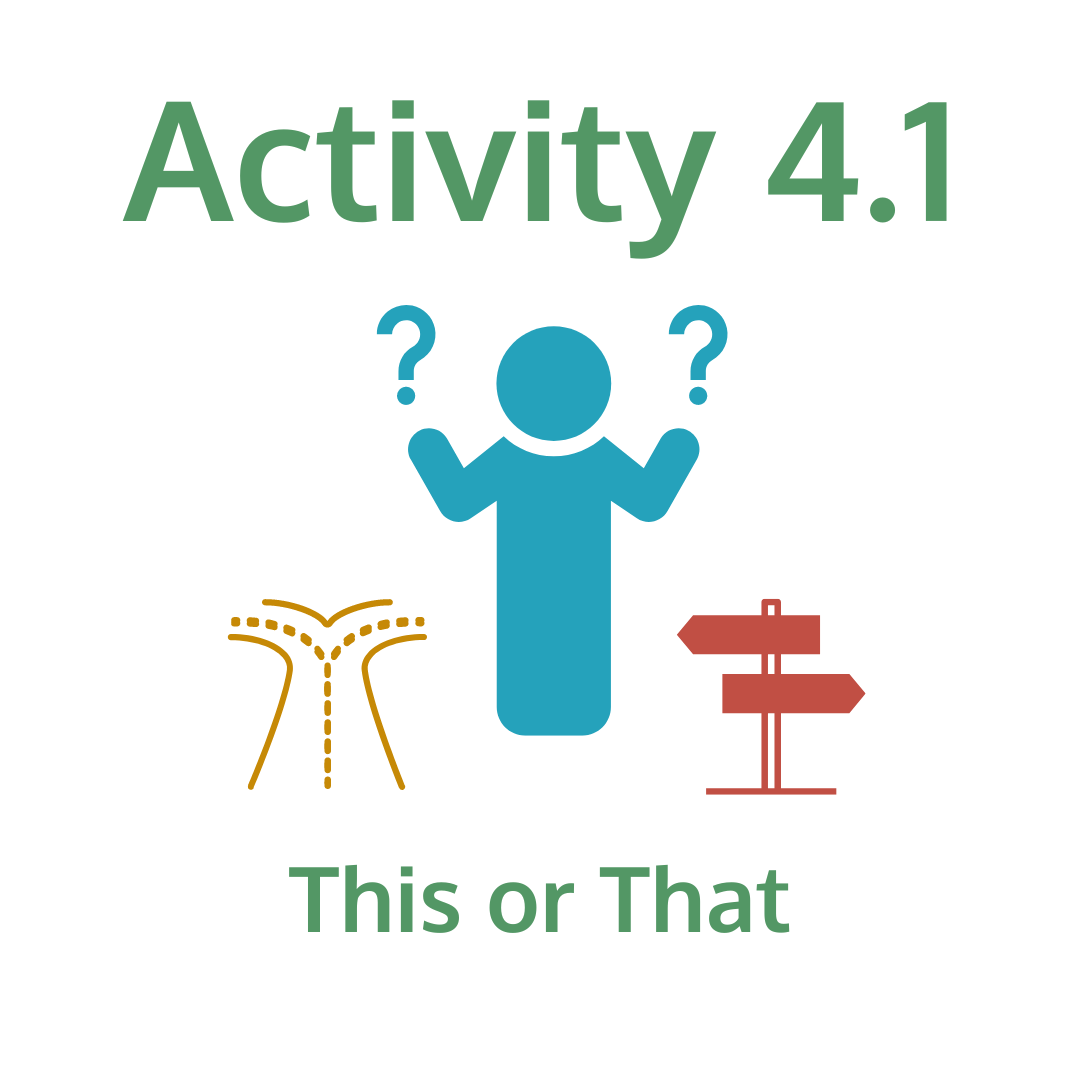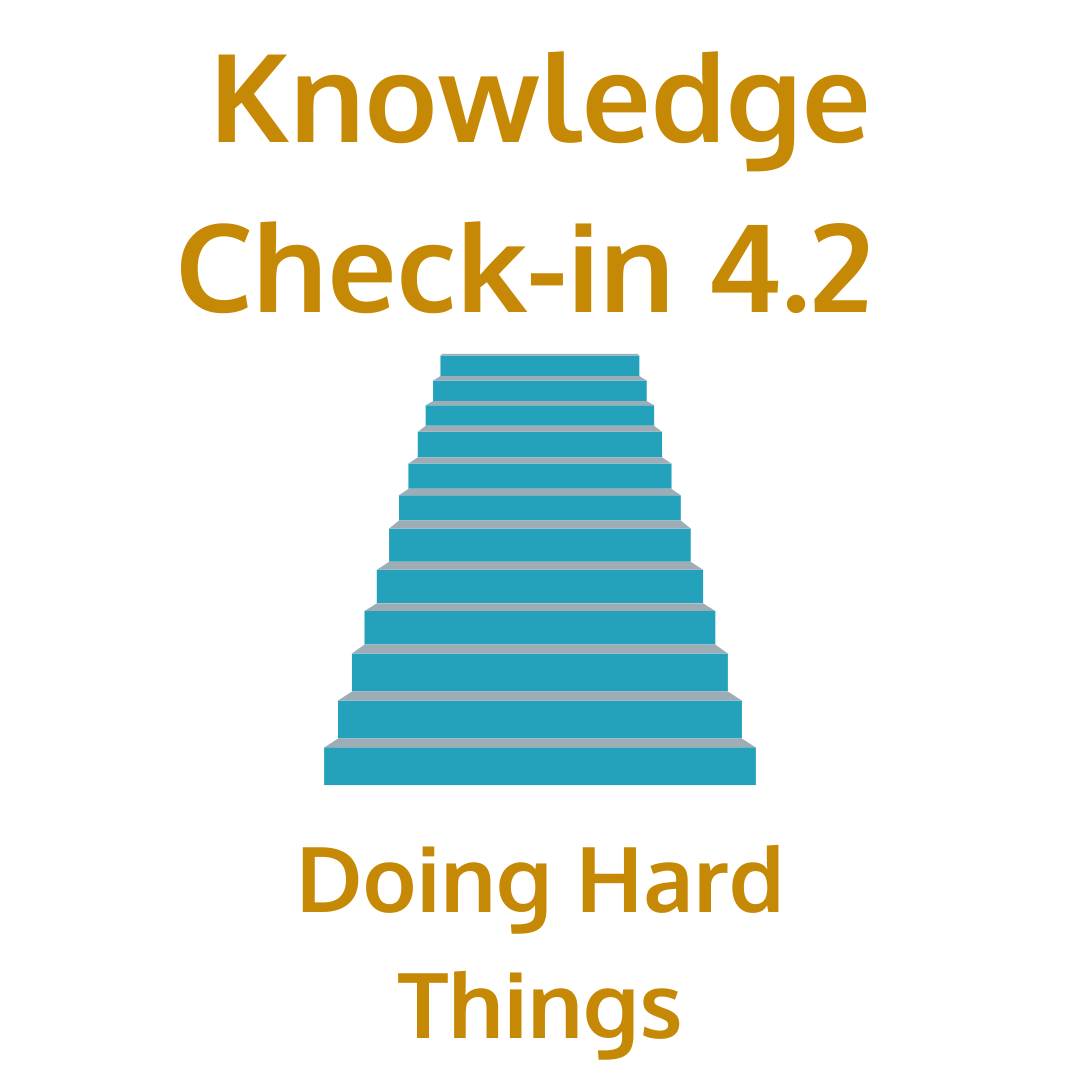Part 4: Resilience and you
Identify and describe specific skills related to resilience that can help us frame and face stress.
Estimated time to complete: 1 hour 30 minutes

Quiz 4.1: Growth and fixed mindset
5 mins
Growth mindset is the belief that abilities and intelligence are malleable, and that improvement occurs by making mistakes and learning from those experiences.
Fixed mindset is the belief that you are born with certain abilities and nothing you can do will change that.
Lesson 4.1: Resilient traits
4 mins
Activity 4.1: This or that
15 mins
The following questions will walk you through several choices that may come up during a typical week in an academic term.
Reflection 4.1: Stress and active coping
5 mins
The previous activity was an example of a regularly occurring stressor in a student’s life, but it isn’t about this example, it’s about what we can learn from this example to apply to other situations.
Activity 4.2: Resilient Trait Development
10 mins
In this activity, we will ask you to reflect on the different journeys people take as they develop their resilience, and how this may impact their behaviour differently while they are working towards their goals.
Reflection 4.2: Social connections
10 mins
Whether you’re naturally a social butterfly or prefer to keep to yourself, boosting our social connections can be one way to improve our resilience. Let’s think about what our social habits are and how we can leverage our natural social style to improve our connections.
Activity 4.3: Imposter syndrome reflection
Indeterminant
For this activity write in the discussion board about if you feel imposter syndrome and include some details on why.
Review the comments of at least two others and see that you’re not alone, it is very common to feel this way.
Finally, plan out (on your own) how you will combat feelings of imposter syndrome in the future and do it!
See the next page for the discussion board.





